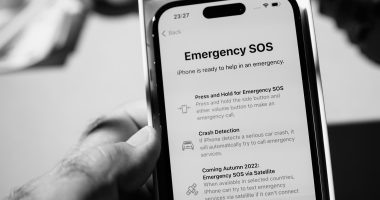In a few years, having access to the internet will be considered a human right, just like food, water, and shelter. Everything we do nowadays is, in some way, shape, or form, connected to the world wide web. You talk to your friends and family online, play games, and work online. More people nowadays care about having a blue checkmark on Instagram than having a new car.
Just like thirst signifies a need for water, hunger signifies a need for food, and being hacked signifies a need for improved cybersecurity practices. To be healthy, you don’t need to wait until you feel thirsty or hungry to drink water or eat food.
To be digitally safe, you don’t need to get hacked before you improve your knowledge, strengthen your passwords, update your devices, and install a VPN and an antivirus. Let’s dive deeper into the ways you can protect your cybersecurity needs.
Browsers
A browser like Chrome, Opera, Firefox, Edge, or Brave is how you often interact with the online world. It loads webpages and processes info, and serves up the content you want to see. However, it’s also the easiest way for hackers to plant a virus on your device, direct you to fake websites, and avoid detection from authorities.
In the upper right corner of your browser, there is an icon resembling a lock. Secure pages have an SSL certificate that makes them safe to use. You need to check for that icon whenever you visit a new website and proceed. Updating your browser to the latest version is a great idea because newer patches automatically scan sites for this threat.
Furthermore, you should disable the autofill function that remembers all of your passwords. If a hacker finds a way to exploit your browser, they will have immediate access to all of your emails and confidential info. Writing your password and mail every time is a nuisance, but it only takes half a minute.
It’s well worth the wait, effort, and convenience to ensure that all your accounts remain safe.
Firewalls, antiviruses, and VPNs
All of these apps have one thing in common. They serve to protect you from online harm. Chances are that you already have a firewall installed if you’re using Windows or macOS. Android and iOS have a few safety firewalls, but they’re not as secure as desktop setups. If you’re a Linux user, then you probably need to install one yourself.
Firewalls are the most basic form of protection from viruses on your device. Windows Defender used to be mocked because it didn’t do much in the past. However, times have changed, and now it’s on par with modern antivirus programs.
When we’re on the topic of antivirus apps, it would be wise to go for a paid option because of the added layers of security they provide. They constantly scan your computer and notify you whenever something suspicious occurs.
As soon as you start a download, the antivirus checks if there’s an executable attached to an innocently looking file. It might not seem like much, but that’s the main way hackers and cybercriminals take control of people’s devices.
Last but not least, there are VPN programs. Virtual private networks serve to hide your IP address and make it look like you’re browsing the web from a different location. Not only that, but they encrypt the data you send through a network and make it almost impossible for you to get traced by your internet service provider, government, or the IT team at work.
A VPN app for Android or iOS is essential because this operating system is the weakest to secure and the easiest to exploit.
Avoid scams
This is the last tip to protect your cybersecurity needs, but it’s also the hardest. For the previous ones, you just have to install an app or update a program, and the technology does everything.
However, avoiding scams is a whole other story. It’s like telling somebody don’t trip while walking. Eventually, it will happen, even if you pay close attention to it.
Scams are becoming more sophisticated by the day, and there’s no telling what hackers will think of next. They’re using mirrored pages, real human profiles, and tech exploits to get you to click on their link. Eventually, one of those tactics is going to work on you.
Therefore, it’s important to be aware of the newest trends in cybersecurity and triple-check each link before you click it. Often, hackers will hyperlink a different website into an existing page or a message to make it seem like you’re visiting the real deal. In reality, you get directed to a copy of the original.
A few final words
Cybersecurity is a field that’s always evolving. You have to evolve with it. Hackers will keep trying new and improved tactics to steal your identity and take your money. Being up to date with the newest trends will help you stay safe and navigate the online world without worry.
Christina is an Author at the Landscape Insight. She writes about various topics including Celebrities, Relationship Rumours, History, TV Series & Web Series Updates, etc. Outside her Professional Work, she enjoys watching Web Series and Gardening. You can reach Christinia at – [email protected] or on Our website Contact Us Page.








